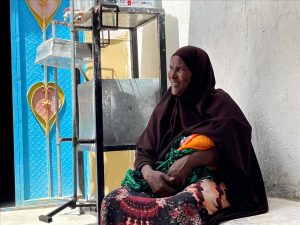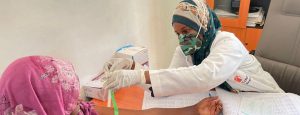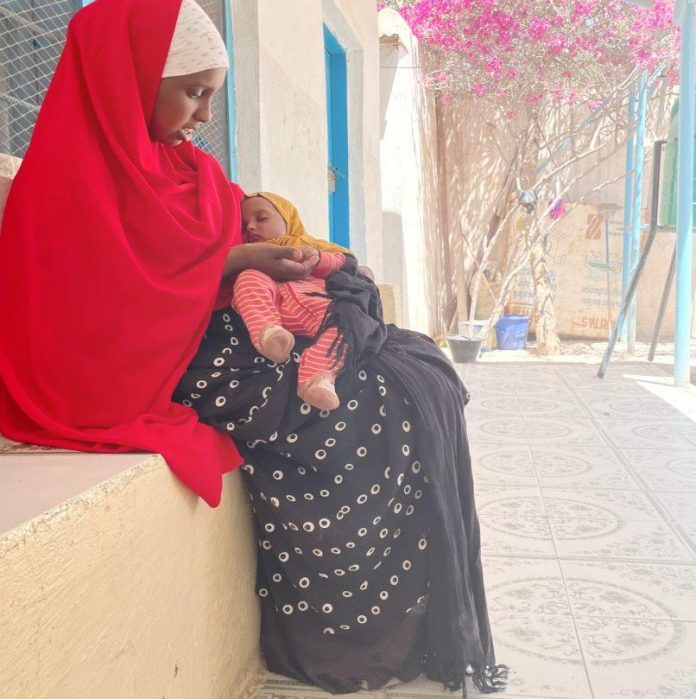Droughts and flooding are becoming more common in the Horn of Africa, which is currently suffering from its worst drought in 40 years.
As a result, the aid sector has increased emergency cash transfers in recent years — but this is only a temporary fix. To create longer-term resilience, the sector is working with governments in Somalia and Somaliland on distributing social protection cash transfers — which are more dependable and longer term — as part of efforts to build a broader social safety net system.
“Humanitarian cash focuses solely on saving lives — it does not contribute to poverty reduction,” said Mohamud Isse Yusuf, Save the Children Somalia’s social protection programme manager. “Providing cash transfers to communities over a long period of time will strengthen their resilience to future disasters.”
The Somali Cash Consortium, a coalition of non-governmental organisations, is providing cash transfers to pregnant and lactating mothers in Somalia and Somaliland as part of this effort. It hopes that its cash assistance programmes will encourage them to visit health clinics on a regular basis, improving their nutrition as well as that of their newborn child.
The program’s participants come more frequently than other mothers. It also encourages other mothers to come because they believe they will be involved in the programme one day,” said Filsan Mohammud, a nurse at a maternal health centre in Yake village, Puntland.
By Sara Jerving
PICTURES OF RELATED STORIES
HARGEISA, Somaliland — HARGEISA, Somaliland — Khadan Yusuf went into labour two years ago in the middle of the morning. It all happened in a flash. She passed out and awoke to the sound of her son crying about a half-hour later. The birth took place in the comfort of one’s own home.
“It was his first and last cry,” she explained. After five minutes of crying, the baby fell silent.
She was transported to a private hospital for about $200 in order to save her own life. Her blood pressure was found to be high. During her pregnancy, she had not visited a health clinic.
She reflected on the tragic morning, saying, “He belonged to Allah, and he returned to Allah.” This was her second child to succumb to complications soon after birth.
Yusuf made it a point to visit the health clinic on a regular basis after he died. She got pregnant last year and went to all of her appointments. She gave birth to a healthy daughter in January.
“I hope she lives a long, healthy life,” she said, cradling the baby in her arms, swaddled in scarves. “And when old age comes for me, I hope she takes care of me.”
Yusuf was enrolled in a programme to receive $20 in mobile money cash transfers each month during her third trimester. The payments are for a period of two years. She spent the money on food, diapers, and powdered milk for her other children, as well as paying her water bill. Her husband is a taxi driver, and she is unemployed.

Khadan Yusuf and her daughter at a Hargeisa health clinic.
The cash is provided by the Somali Cash Consortium, a coalition of non-governmental organisations (NGOs) that includes Concern Worldwide, the Norwegian Refugee Council, Save the Children, and the Danish Refugee Council, and is funded by the European Union delegation to Somalia, as well as the Swedish and Danish embassies. Over 20,000 pregnant women have been registered by the consortium in Somalia and Somaliland. It collaborates with the governments of Somalia and Somaliland, the latter of which declared independence from Somalia unilaterally.
By encouraging pregnant women to visit health clinics and engage in other healthy behaviours, the consortium hopes that its cash programmes will help others avoid the pain Yusuf endured.

A health worker in Hargeisa, Iimaan Diiriye, measures the width of a pregnant woman’s arm.

